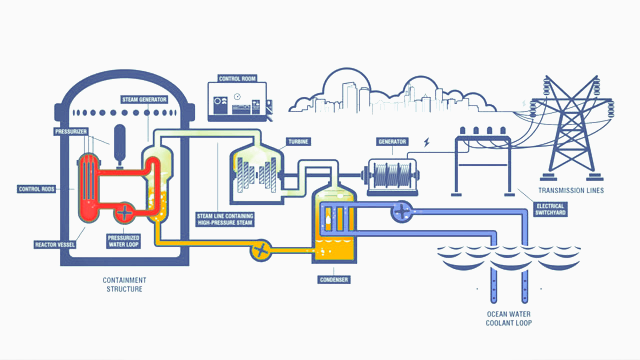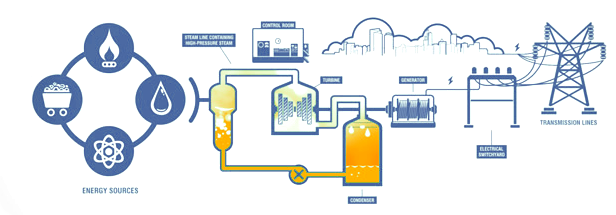Nuclear power plants generate electricity in a very similar way to other traditional power plants, differing in the type of fuel used. All electricity generation plants produce heat that turns water into steam, which drives a turbine connected to a generator and subsequently produces electricity.

Uranium, a naturally radioactive element abundantly found in most rocks, is used as fuel to power nuclear reactors.
In a nuclear reactor, uranium atoms are split into smaller parts by changing their molecular structure using the fission process. The energy released during this split creates heat to produce steam, which is used by a turbine generator to generate electricity.
The nuclear fission process is an extremely efficient way to produce power – one uranium pellet, the size of a fingertip, produces the same amount of energy as 480 liters of oil or 1 ton of coal.
Nuclear energy is one of the most environmentally friendly methods of producing electricity, as nuclear plants do not burn fossil fuels thus they do not produce greenhouse gas emissions.
